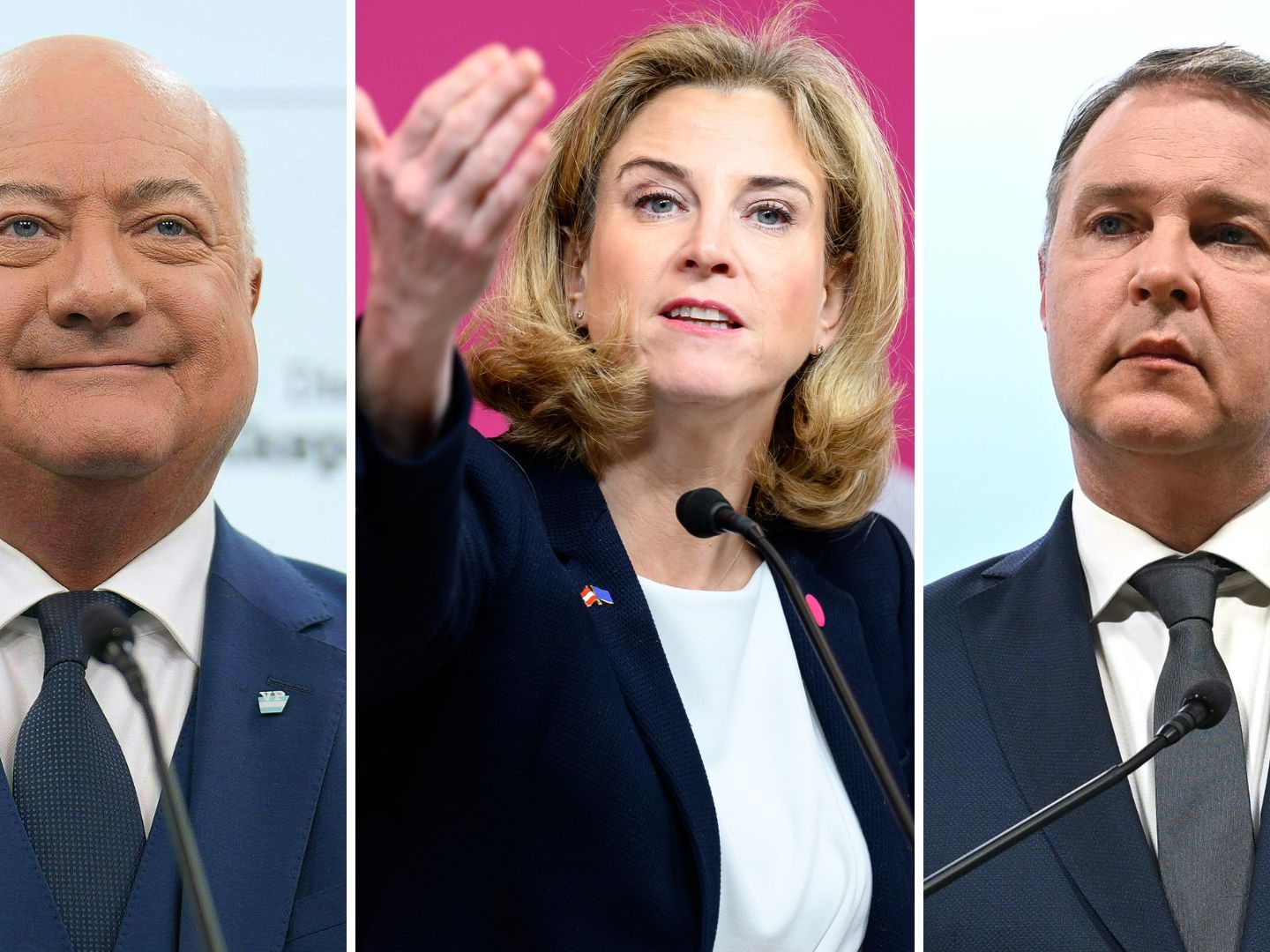Is a Three-Party Coalition Coming After All? NEOS Negotiating Again

During the government negotiations on Friday, attempts were made to move the NEOS into a three-party coalition. The related talks with the ÖVP and SPÖ have been ongoing since the morning, but no progress has been reported yet. Federal President Alexander Van der Bellen is becoming increasingly impatient. In a statement released in the afternoon, the head of state urges the ability to compromise.
It was actually expected yesterday that the leaders of the ÖVP and SPÖ would appear at the Hofburg after reaching an agreement on the budget. However, after deciding to try again with the NEOS, everything is now delayed further. By the afternoon, no appointment with the Federal President was in sight. Even the NEOS party board meeting seems to have taken longer than planned. The same now applies to the three-party talks.
Van der Bellen has now taken action himself. In a statement, he "reminds" all parties that compromise is another word for a joint solution. A functioning democracy requires the courage to defend opinions, but also the wisdom to find solutions through compromise. This is not a weakness, but the key to sustainable and fair decisions in a democracy: "Because it's not about individual interests. It's about the whole state."
NEOS Apparently Back on Board in Coalition Talks
According to reports, the formal inclusion of the NEOS in a coalition is the wish of both the ÖVP and the Vienna SPÖ. Many within the Social Democrats could have imagined more flexible partnerships with the three opposition parties. The fact that they are trying again is somewhat surprising, as the NEOS had heavily criticized the SPÖ - especially its leader Andreas Babler - during the failure of the first three-party negotiations.
Education and Foreign Affairs Ministries Could Go Pink
They are now likely to have been offered two ministries. These are said to be Education and Foreign Affairs. The core of the ÖVP ministries would include, in addition to the Chancellery, the agendas for Interior, Defense, Economy, and Agriculture. The SPÖ would receive, among others, Finance, Social Affairs, Infrastructure, and Women's Affairs. Justice is likely to land with the ÖVP, although it could possibly go to the NEOS instead of Foreign Affairs. The appointment of the Education Ministry could be interesting, as the favorite was actually Vienna City Councilor Christoph Wiederkehr (NEOS). However, he is supposed to lead the state election in Vienna as the top candidate in two months.
Negotiations Probably Not Concluded Today
Regarding the next steps, several more days of negotiations are expected. The government declaration could only be made at the regular session of the National Council next Wednesday if a two-party coalition is formed. The agenda set on Friday does not include a government declaration, but this could still be changed at short notice. The NEOS would still need to consult their members for a government agreement. The next corresponding meeting is conveniently scheduled for next Friday anyway.
FPÖ Detects "Voter Fraud"
The prospect of the three-party coalition does not leave the Freedom Party, who failed in forming a government, indifferent. General Secretary Michael Schnedlitz even writes of "voter fraud" by a "loser traffic light" in a press release. The "clear will of the voters" is being bypassed by "the system." "Destruction of prosperity," "security chaos," and "illegal mass immigration" are what Schnedlitz expects. Therefore, he calls for new elections.
Many NEOS Demands So Far Unreciprocated
If the ÖVP and SPÖ actually bring the NEOS back into the coalition boat, some differences need to be resolved. The protocols leaked in January regarding the negotiations of the three parties that failed at the turn of the year reveal where the NEOS faced obstacles.
Broadly set to red - and thus without agreement - remained the NEOS ideas on federal state reform, the reduction of advertising expenses and party financing, objectivity in appointments, and depoliticization of the boards of ORF and social insurance.
In the area of budget and taxes, the NEOS advocated for earmarking the consolidation success for an income tax reform and a statutory spending cap. Both remained set to red. In the health sector, they hit a wall with the demand for single-source financing of the public health system.
On the reduction of ancillary wage costs, NEOS and ÖVP were in agreement, but the SPÖ slowed things down. In the transport sector, the NEOS were alone with their desire for reforms in company cars and the diesel privilege.
The ÖVP and SPÖ also had little enthusiasm for the NEOS' wishes for pension reform, specifically linking the retirement age to life expectancy. Placing the entire education sector under federal competence and introducing a "middle maturity" also remained "red."
The NEOS, like the FPÖ recently, called for a reform of the chambers, including an end to mandatory membership. Both the ÖVP and SPÖ rejected the proposal. Strengthening competition among energy suppliers is also a concern that the NEOS could not push through.
Much also remained open in the area of national defense, where it is not clear from the protocols who supported or opposed which demands. In the past, the NEOS repeatedly stood out with the - unpopular among others - idea of a European army.
(APA/Red)
This article has been automatically translated, read the original article here.





